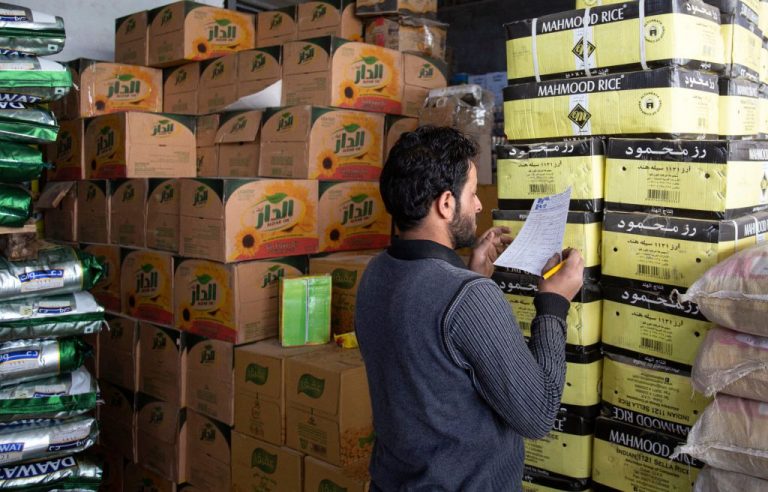Fears of food and fuel shortages are gripping the Middle East following Russia’s invasion of Ukraine as prices for essential goods such as wheat and sunflower oil, that are typically imported from the two countries, continue their upward march.
In Egypt, Syria and Lebanon, the price of bread and other foodstuffs are skyrocketing while concerns over their availability mounts.
Egypt imports about 75 percent of its wheat from Ukraine and Russia making it the largest wheat importer in the world, according to the U.N. Food and Agriculture Organization.
Bread prices in the region are very political where people refer to it as “aysh,” Arabic for “living” or “subsistence” as opposed to “bread.” The word was a popular protest chant during the 2011 Arab Spring uprising.
Last week, in order to protect its food reserves, Egypt banned the export of flour and wheat, as well as pasta, lentils and fava beans. According to a report by the Food and Agriculture Organization of the United Nations (FAO) more than 70 percent of Egypt’s population are unable to access a healthy diet and are “in dire need of greater affordability.”
Success
You are now signed up for our newsletter
Success
Check your email to complete sign up
Last month, the crisis prompted the Lebanese Economy Minister, Amin Salam, to ask the United States, Canada and India for wheat donations and discounts. Wheat, originating from these countries, are used to make large circular bread pockets that are a common food staple in the region.
Compounding the situation is a shortage of silos to store grain reserves following the 2020 Beirut port explosion which severely impacted the critical infrastructure. Mills have become last resort storage facilities, but the practice has reportedly left the country with no more than one month of reserves.
Mills in the region have also begun rationing wheat, while customers scramble to buy up as much bread as they can and are reportedly hoarding it in freezers, according to the Washington Post (WaPo).
Kevork Momjian, an owner of a small bakery in Beirut told WaPo, “For over 10 days, [supply from mills] has been severely reduced. If we order 10 bags, they would send us two.”
Supply of sunflower products disrupted
Numerous countries get their sunflower supplies from Russia and Ukraine and the war has severely disrupted the supply chains that get these products to market.
According to WaPo, store owners and customers alike in Damascus, Syria, are reporting that sunflower and other vegetable oils have all but vanished from markets.
In Syria, Iran, Iraq, and other places, sunflower oil is widely used in cooking.
Since the crisis in Ukraine began, shop owners have struggled to obtain sunflower oil and, when they do, the price is said to be more than double what one would typically spend. The scarcity of sunflower oil has reportedly spawned a thriving black market. A popular substitute, cottonseed oil, is also hard to come by.
According to the Syria Report, Syria, a country that has suffered with a bread crisis for years, relies almost entirely on Russian wheat imports. The country also relies on Ukraine for much of its corn imports.
The war has prompted the Syrian government to adopt emergency measures to shoulder the economic fallout of Russia’s invasion, saying that it anticipates it will have to ration commodities like wheat, sugar, rice, potatoes and vegetable oil.
Like much of the world, the war in Ukraine has also resulted in a surge in fuel prices in the Middle East. In anticipation of a price surge, gas stations around Lebanon began to limit supplies or closed entirely. Lines of angry customers prompted the government to intervene and forced owners to reopen.
In Lebanon prices have shot up by around 50 percent. The price surge has had a noticeable effect on traffic congestion in Beirut where people are opting to remain home to save money.


















